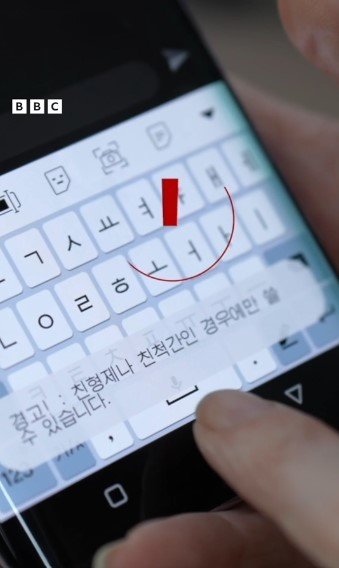
North Korea is using smartphones to indoctrinate and monitor its citizens in what the BBC described as “Orwellian tactics,” highlighting features that censor South Korean expressions and secretly capture user activity. British author George Orwell famously depicted a totalitarian surveillance state in his novel 1984.
According to the BBC and the New York Post on June 1, North Korean smartphones are programmed to automatically replace South Korean phrases with state-approved alternatives and issue warning messages. In one example shown using a phone obtained by a South Korea-based defector media outlet, typing “oppa,” a common South Korean term of endearment for male partners, was automatically replaced with “comrade,” followed by a pop-up warning that said, “Warning! This can only be used between actual siblings.” Typing “South Korea” was changed to “puppet region.” The BBC described these features as a form of “Orwellian programming” and said smartphones are a critical tool in North Korea’s indoctrination strategy.
The report also revealed that these phones secretly take screenshots every five minutes and store them in a hidden folder inaccessible to users. The New York Post noted, “North Korean authorities likely have access to these secret folders,” calling it a “bizarre 21st-century version of Orwellian surveillance.” The report added that this underscores how “the Kim Jong Un dictatorship may be winning the battle in the tech domain.”
The BBC noted that North Korea is the only country in the world without a public internet. However, some foreign broadcasters and nonprofit organizations transmit signals at night that allow North Koreans to listen to outside media secretly. It added that thousands of USB drives and microSD cards containing South Korean films, dramas, music, and news are smuggled into North Korea each month. “South Korean TV dramas may appear harmless,” the BBC said, “but scenes of high-rise apartments, fast cars, and upscale restaurants shock North Korean viewers by revealing South Korea’s everyday reality.”
Since 2023, North Korea has criminalized the use of South Korean words and accents. Authorities reportedly check confiscated smartphones for South Korean expressions in text messages. The BBC also noted that much of the content dissemination into North Korea had been supported by the U.S. government, but these efforts have suffered after funding cuts following the second Donald Trump administration.
Woo-Sun Lim imsun@donga.com